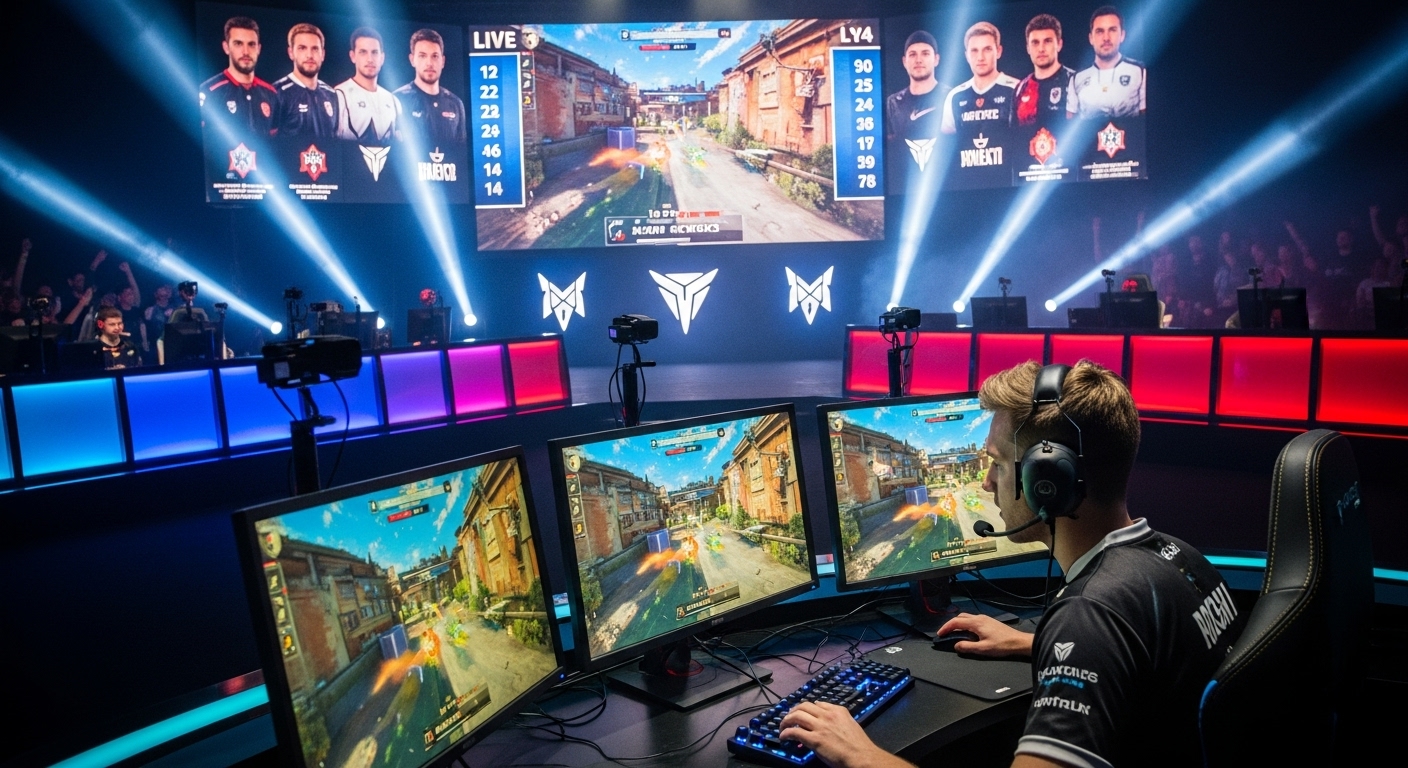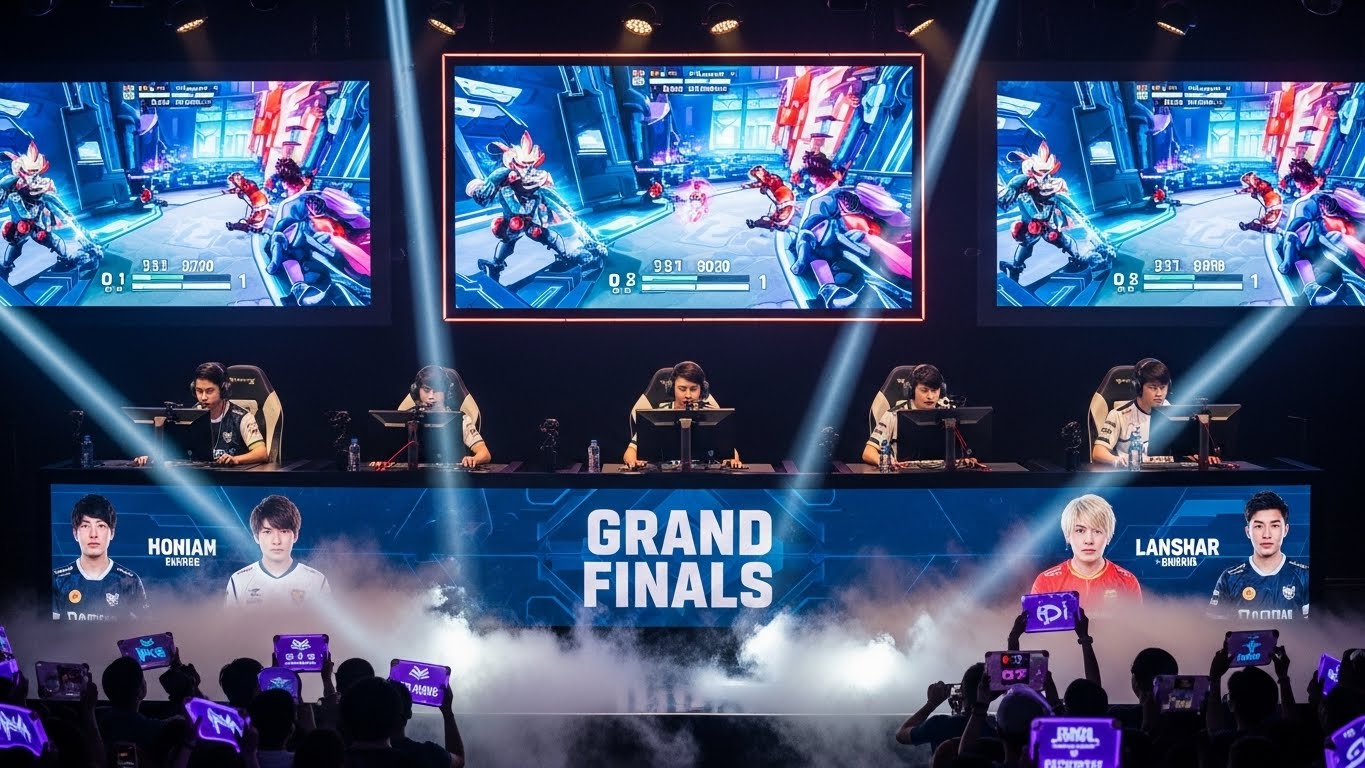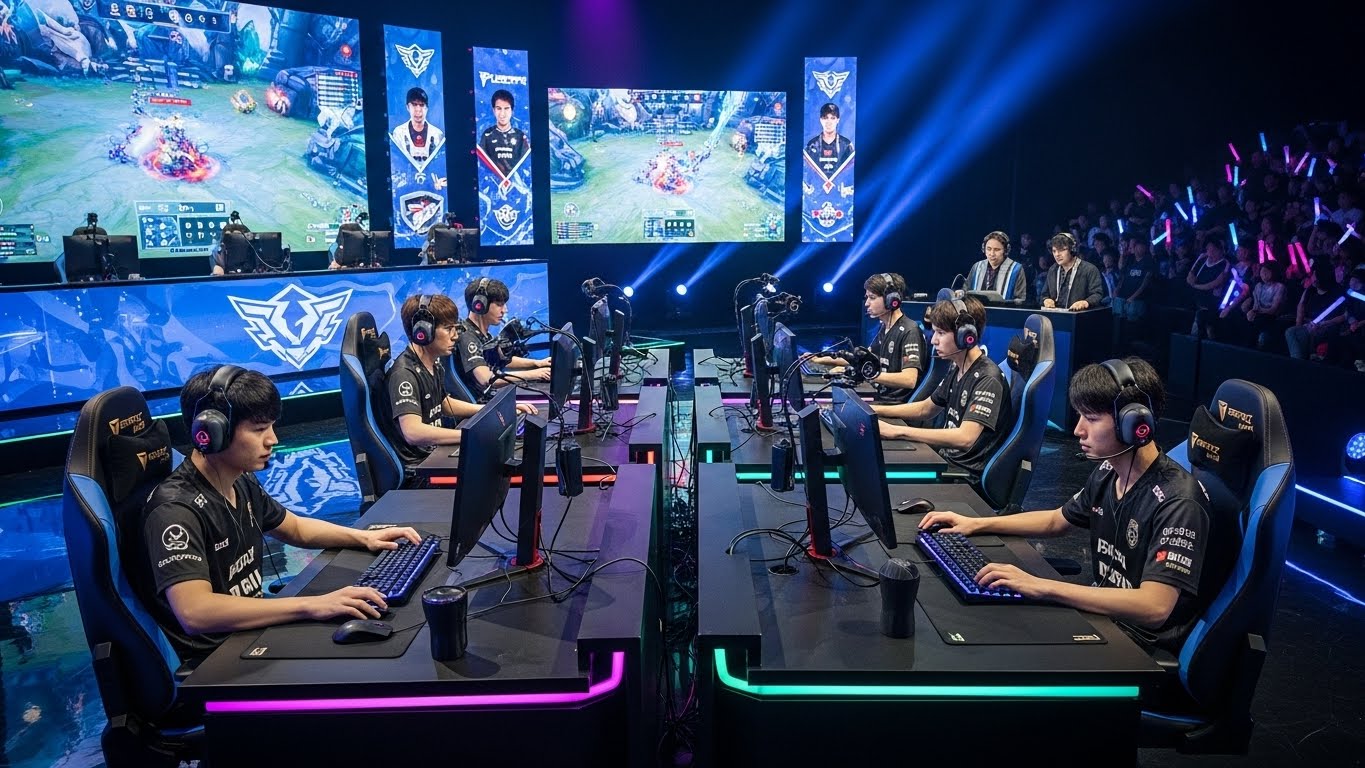The world of esports has exploded in recent years, captivating millions of viewers, players, and organizations around the globe. Among the countless games that have gained traction, Fortnite stands tall as a revolutionary force in the world of competitive gaming. What began as a casual, free-to-play title has grown into a cultural phenomenon and one of the biggest esports titles in history. With its combination of fast-paced action, building mechanics, and ever-evolving in-game events, Fortnite has cemented itself as a true giant in the esports ecosystem.
In this blog post, we will explore the rise of Fortnite as an esports titan, its impact on the industry, and why it continues to be the battle royale of champions.
The Rise of Fortnite: A New Era for Esports
Launched in 2017 by Epic Games, Fortnite quickly became a staple of the gaming world. The game’s free-to-play model, combined with its Battle Royale mode, catapulted it to global success. What made Fortnite different from other battle royale games was its unique building mechanics. Players not only had to be sharp with weapons but also needed to be tactical with their structures, creating a dynamic and strategic layer that kept the gameplay fresh and exciting.
From casual players to professional competitors, Fortnite’s appeal was universal. Epic Games realized the potential for competitive gaming early on and set the foundation for what would become one of the largest and most successful esports leagues in history. The Fortnite World Cup, which debuted in 2019, would serve as a milestone for the game, showcasing not only the best players but also the massive scale of the game’s esports scene.
Fortnite Esports Tournaments: A Global Phenomenon
One of the key elements that make Fortnite so popular in the esports scene is its massive tournaments. Epic Games took a bold step in 2019 when it announced the Fortnite World Cup with a prize pool of $30 million. This marked the beginning of Fortnite’s journey as a major esports contender, attracting top players from around the world. The World Cup Finals held at the Arthur Ashe Stadium in New York City brought the game to the global stage, with fans packing the venue and millions more tuning in online.
Fortnite World Cup
The inaugural Fortnite World Cup in 2019 was a game-changer for the esports industry. The event featured both solo and duo competitions, with players battling it out for a portion of the colossal $30 million prize pool. The atmosphere at the World Cup was electric, with the best players in the world competing for the ultimate title. The event was a statement that Fortnite was here to stay, not just as a casual game, but as a serious competitive esport.
- $3 Million Winner’s Prize: The solo competition was particularly thrilling, with the grand prize of $3 million awarded to Kyle “Bugha” Giersdorf, a 16-year-old from the United States. His victory was seen as a huge milestone, as Bugha demonstrated remarkable skill, strategy, and composure under pressure.
- Duo Championships: The duo competition also brought together top players, with the winning team taking home $1.5 million. The partnership between players and their different playstyles created a unique dynamic in the competition.
The Fortnite World Cup in 2019 was followed by several smaller but still significant tournaments. Epic Games continued to host various competitive events such as the FNCS (Fortnite Champion Series), which became a major staple in the competitive calendar.
The Evolution of Fortnite Esports: Seasons and Updates
One of Fortnite’s most distinctive features is its ever-changing world. Epic Games continuously updates the game, introducing new weapons, skins, and entire seasons that dramatically shift the way the game is played. These updates not only keep the casual player base engaged but also keep competitive players on their toes, constantly adapting to the evolving game mechanics.
Seasons and Their Impact on Competitive Play
Each new season introduces new challenges, new gameplay mechanics, and often completely changes the landscape of the Fortnite map. For competitive players, this means that strategies must evolve with every update. The inclusion of new weapons, vehicles, or mechanics can completely alter the meta (the most effective strategies and playstyles at a given time).
- Dynamic Map Changes: The frequent changes to the map (such as adding or removing locations, terrain, or gameplay elements) require players to adapt their strategies constantly.
- Live Events: Fortnite is also famous for its in-game live events, such as the Travis Scott concert or the Galactus event, where the game world literally shifts based on a live storyline. These events are not only exciting for players but are also incredible moments for spectators.
The consistent updates have kept Fortnite esports exciting, as players never know what’s coming next. This dynamic nature of the game has allowed Fortnite to remain relevant in the fast-paced world of competitive gaming.
Fortnite’s Prize Pools and Sponsorships: Big Money in the Game
Fortnite has redefined the financial landscape of esports. The game’s massive prize pools and the backing of big-name sponsors have attracted top-tier professional players, organizations, and content creators. Epic Games’ commitment to supporting the competitive scene is clear from its impressive prize money offerings.
Massive Prize Pools
The Fortnite World Cup 2019 was only the beginning. The annual FNCS (Fortnite Champion Series) events also offer substantial prize pools. The total prize pool for these tournaments often exceeds several million dollars, with the FNCS Finals being one of the highlights of the esports calendar. The chance to win big money attracts players from all walks of life, making it one of the most accessible and high-stakes esports competitions.
Brand Sponsorships and Partnerships
Epic Games has partnered with major brands, further fueling Fortnite’s success in esports. From technology companies like Intel to beverage brands like Coca-Cola, the game has attracted a wide array of sponsors who see the value in associating their names with the global phenomenon that Fortnite has become. These sponsorships help fund tournaments, provide streaming opportunities, and increase exposure for players.
The Role of Content Creators and Streamers
One of Fortnite’s greatest strengths lies in its community of content creators and streamers. Players like Ninja, Tfue, and Bugha have turned their Fortnite prowess into lucrative careers, streaming their gameplay on platforms like Twitch and YouTube. These influencers play a vital role in promoting Fortnite esports and building a global fanbase.
Streamers as Influencers
Streamers and content creators play a unique role in Fortnite’s esports scene. They are not just players but also influencers who shape the game’s culture. Through live-streaming their games, creating tutorial content, or participating in in-game events, they keep the community engaged and grow the popularity of the game. Their influence extends beyond just the game; they also help drive the purchase of in-game items, skins, and cosmetics, generating revenue for Epic Games.
Fortnite’s Community and Inclusivity
One of the reasons Fortnite has had such an enduring impact on esports is its commitment to inclusivity. The game appeals to players of all skill levels, ages, and backgrounds. Unlike some other competitive titles that require years of practice and mastery, Fortnite offers a more accessible entry point for new players while still maintaining a high skill ceiling for those who want to compete at the highest level.
Open Tournaments and Accessibility
Fortnite’s approach to competitive play has allowed many aspiring players to enter the scene without the need for sponsorships or professional teams. Epic Games introduced several open tournaments, where anyone with a strong performance could earn a spot in major competitions like the Fortnite World Cup. This level of accessibility has helped foster a diverse and global competitive scene, where players from all corners of the world have the chance to prove themselves on the biggest stages.
The Future of Fortnite Esports
Looking ahead, Fortnite’s esports scene shows no signs of slowing down. As Epic Games continues to innovate with new updates, live events, and tournaments, the competitive landscape will only get bigger and more exciting. The game’s influence on esports is undeniable, and its continued success will likely inspire other game developers to invest in large-scale esports events.
Expansion of Esports and New Opportunities
- Mobile and Cross-Platform Play: Fortnite’s cross-platform functionality allows players to compete against each other, regardless of whether they are playing on PC, console, or mobile. This opens up new opportunities for players from different gaming backgrounds to join the competitive scene.
- Increased Sponsorship and Media Coverage: As Fortnite continues to grow, so too will its media presence. More sponsorships, partnerships, and broadcast deals will only increase the visibility and legitimacy of Fortnite esports.
- New Game Modes and Tournaments: Epic Games consistently introduces new modes and variations of Fortnite, offering fresh experiences for players and fans alike. This innovation ensures that the game remains relevant in the ever-evolving world of competitive gaming.
Conclusion
Fortnite has gone from a fun, casual game to a dominating force in the world of esports, changing the landscape of competitive gaming forever. Through massive tournaments like the Fortnite World Cup, large prize pools, consistent updates, and the power of its community, Fortnite has earned its place as one of the most exciting esports titles in the world.
For players, the dream of becoming a Fortnite champion is very much alive, and for fans, there is no better time to get involved in the action. Whether you’re a player, a fan, or just someone curious about esports, Fortnite continues to be the Battle Royale of Champions, delivering excitement, innovation, and opportunities for all.



